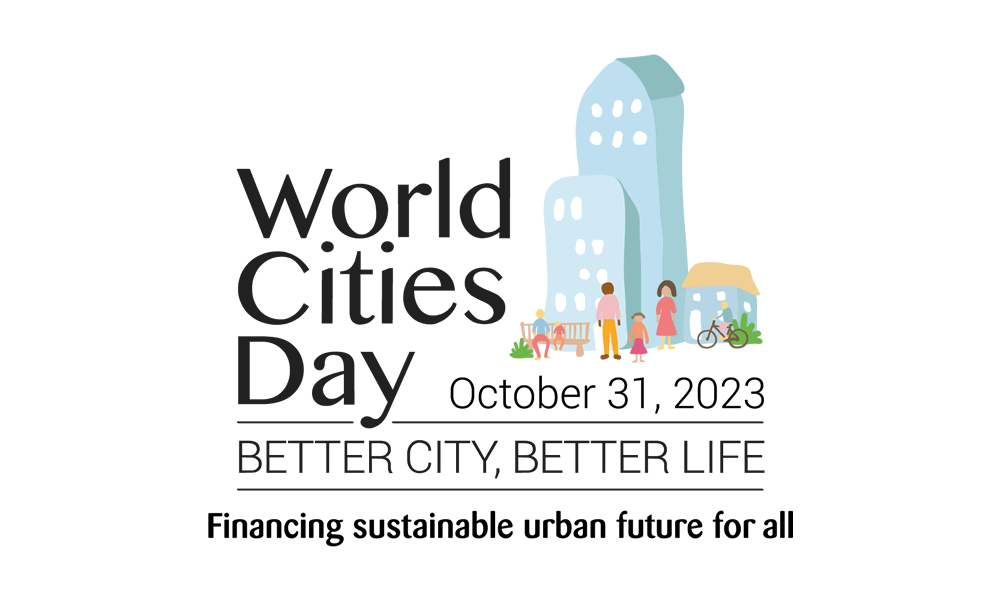« June 2020 | Main | August 2020 »
July 31, 2020
Mastercard collaborates with Microsoft to accelerate Innovation across Digital Commerce and Startup Ecosystems.
• The collaboration will build pathways to financial security and provide tools for sustainable growth.

Purchase, NY & Redmond, Wash. | July 30, 2020. — On Tuesday, Mastercard and Microsoft Corp. announced a collaboration to shape the future of digital commerce, drive startup innovation and enable financial inclusion. The partnership will accelerate Mastercard Labs’ cloud-native research and development activities, facilitated by Azure and AI, to advance Mastercard Labs’ mission to de-risk and commercialize emerging technologies and platforms for digital commerce. Through access to technical expertise and cutting-edge techniques, Mastercard’s partners will get further empowered to build and securely scale new solutions.
“We are thrilled to deepen our longstanding relationship with Microsoft by advancing the research, development, and scaling of new technologies and business models,” said Ken Moore, executive vice president and head of Mastercard Labs. “This strategic collaboration will strengthen and extend our cloud services and capabilities for clients and fintech partners, sparking innovation, and creativity for the ecosystem. It will enable us to explore opportunities focused on new client segments, technologies, and trends as we continue to drive financial inclusion and build the future of commerce.”
“Mastercard’s commitment to innovation and financial inclusion has accelerated digital commerce for individuals and businesses worldwide,” said Judson Althoff, executive vice president of Microsoft’s Worldwide Commercial Business. “We look forward to building on our strong relationship and accelerating co-innovation to help connect and power a digital economy for everyone, everywhere.”
• Empowering fintech innovation, advancing digital commerce
Capitalizing on Mastercard’s global network and leveraging Azure’s global reach, the collaboration will enable Mastercard’s ecosystem of partners to explore the use of emerging innovations and new commerce capabilities such as devices that facilitate digital payments in new ways. Through access to Azure technologies, augmented and virtual reality, and the Internet of Things, fintech partners will be empowered to create new user experiences to advance how consumers, businesses, and governments exchange value.
Mastercard’s Start Path program has assisted with the development of over 230 fintech companies worldwide, democratizing access to financial services. The collaboration will expand support for the fintech community by helping diversify and build new businesses, and create and scale new cloud-first digital products and services.
• Enabling financial inclusion
Mastercard and Microsoft share a commitment to ensuring people in underserved communities have access to digital products and services to realize their full potential. The collaboration will advance Mastercard’s vision to improve people’s lives by building pathways to financial security and access to critical services. The Azure cloud environment will serve as the native infrastructure for Mastercard Labs’ inclusion efforts and support Mastercard Community Pass. This platform pulls together complex ecosystems and provides underserved communities with access to essential services, such as education, agriculture marketplaces, and primary healthcare.
Microsoft Azure provides Mastercard — and the ecosystems they jointly serve — with a scalable and flexible platform imperative for establishing secure connections and protecting data, co-innovating with partners, and delivering access to financial services.
Mastercard is a global technology company in the payments industry. Its mission is to connect and power an inclusive, digital economy that benefits everyone, everywhere by making transactions safe, simple, smart, and accessible.
Microsoft enables digital transformation for the era of an intelligent cloud and a creative edge. Its mission is to empower every person and every organization on the planet to achieve more.
Sources: Mastercard, Microsoft.
|GlobalGiants.Com|







Edited & Posted by the Editor | 3:20 AM | View the original post
July 30, 2020
Kia Motors India releases official images of all−new Kia Sonet.
Powerful new compact SUV boasts Kia’s iconic design DNA and a bold and powerful stance.
The cabin combines sophistication and advanced ergonomics with sweeping shapes and striking technical details.
First-in-segment features include digital cluster, 10.25-inch HD touchscreen, and Sound Mood Lighting.
Aimed at young-at-heart, tech-savvy buyers looking for a sophisticated modern design with fascinating features and an unmatched sense of dynamism.
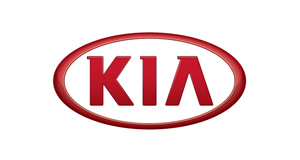



Photos: Kia Sonet. Images provided by & copyright © Kia Motors Corporation.
Kia Motors India, a wholly-owned subsidiary of Kia Motors Corporation, has today released official images of its upcoming Sonet compact SUV. The production-ready Kia Sonet has a distinctive and dynamic design, as well as many first-in-segment features. First showcased at the Auto Expo 2020 as a concept, the all-new Kia Sonet would make its world premiere on August 7, making a bold statement in the compact SUV segment.
Manufactured in India, the Kia Sonet has a sophisticated and lively cabin featuring a smooth, sweeping dashboard and a stylish, minimalist center console that offers easy on-the-go access to its class-leading features. The general ambiance is both youthful and luxurious - ideal for young-at-heart, always-connected consumers.
The Sonet’s interior is modern, vibrant, and offers a high sense of dynamism to drivers. The company has designed it to maximize driver and passenger comfort. Its dashboard provides owners with the car’s full range of user-friendly features, including a two-layer tray to store mobile devices and other items. The center stage is its high-tech digital display and instrument cluster, which features a first-in-segment 10.25-inch HD touchscreen and navigation system with UVO Connected technologies. The Sonet will also offer drivers steering wheel-mounted controls and select a different drive and traction modes. Air vents in the dashboard feature a metallic, diamond-knurled pattern, a chic and stylish design highlight.
The Sonet’s emotive and bold design combines the brand’s signature design traits, including the iconic ‘tiger-nose’ grille, with a three-dimensional ‘stepwell’ geometric grille mesh, making a strong visual impression inspired by Indian architecture. The distinctive LED headlamps reiterate the ‘Wild by Design’ theme, which has inspired the Sonet, giving it a great appearance that genuinely stands out on the road. It projects an aggressive stance with a rugged appeal.
“We are extremely excited to introduce the new Kia Sonet to the world, a compact SUV with a muscular and robust character found only in much larger vehicles. With this in mind, we have designed this SUV with a uniquely sporty attitude, a confident stance, and a dynamic silhouette. The great cultural heritage that our designers found all over India inspired its uncompromising attention to detail and selection of colors and materials,” said Karim Habib, Senior Vice President and Head of Kia Global Design at Kia Motors Corporation. “We believe the Kia Sonet’s compelling character will hold significant appeal for young, aspirational, and always-connected customers in India and beyond.”
Safety is a crucial consideration for all Kia Motors vehicles, and the Sonet will feature an extensive list of active and passive safety equipment. It will come equipped with up to six airbags - offering a class-leading combination of front, side, and curtain protection for occupants.
The Sonet is Kia’s latest ‘Made-in-India’ product. It will be available in many of the brand’s global markets.
Source: Kia Motors Corporation
|GlobalGiants.Com|
Kia Sonet | Coming Soon | #TheNextLevelOfWild







Edited & Posted by the Editor | 6:05 AM | View the original post
July 27, 2020
Maruti Suzuki Swift celebrates 15 years in India.
• Segment creator with over 2.2 million cumulative sales.
• Segment leader for 14 years since its inception.

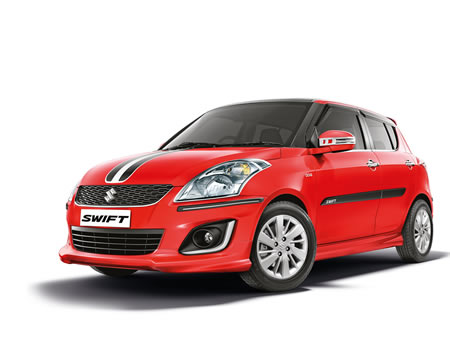
Photo: Maruti Suzuki Swift. Image provided by & copyright © Maruti Suzuki.
New Delhi: India’s premium hatchback, Maruti Suzuki Swift, celebrates the completion of 15 brilliant years. Launched in 2005, Swift heralded the start of the premium hatchback segment in India. It has created a bright legacy with superior driving experience, excellent customer fan following, acceptance, and delight.
The sporty Maruti Suzuki Swift, with its global styling, and an engine tuned specially to deliver outstanding performance, is the most awarded premium hatchback in the country, the company said.
According to Maruti Suzuki, with more than 2.2 million happy customers, Swift has been the number one Premium Hatchback for 14 years. The third-generation Maruti Suzuki Swift with a bold and distinctive look, sweptback led headlamps, aggressive front grille, and cockpit-style interiors exudes sportiness. Coupled with i-create, which enables consumers to make their own unique Swift, it has become a favorite amongst the younger car buyers. These have helped the Swift garner close to 30% market share and capture the pole position in the premium hatchback segment in FY 2019-20, the company explained.
Speaking on Swift’s success, Mr. Shashank Srivastava, Executive Director (Marketing & Sales), Maruti Suzuki India Limited, said, “Brand Swift was the first model that challenged many notions around hatchbacks. More than a car, it was a refreshing new thought process. We designed it to be bold and aggressive, and at the same time, be reliable and economical. It had features offered in a large car, contemporary, yet functional appealing to a younger audience. With a European touch and feel, the hatchback also embodies the sturdiness to handle Indian road conditions. It questioned the inevitability of compromise. In many ways, it was the “coming of age” of the Indian customers.”
According to Maruti Suzuki, “Swift is not just the most loved and awarded car in India but has also been recognized internationally for its dynamic design. Swift received global recognition by winning the Good Design Award in 2017, operated by the Japan Institute of Design Promotion, and was amongst the three finalists at the ‘World Urban Car Of The Year 2018’. The third-generation Swift, launched in 2018, retains its symbolic character, taking its global design language to the next level.”
Source: Maruti Suzuki India Limited
|GlobalGiants.Com|







Edited & Posted by the Editor | 10:22 AM | View the original post
July 26, 2020
Bugatti Baby Reborn: Performance and final specifications announced as production commences.
• The Bugatti limited edition of 500 units now goes into series production.

Photo: The iconic boat tail body design.

Photo: The Bugatti Baby II in French Racing Blue.

Photo: A Bugatti Baby II awaiting its next test drive.

Photo: Fully electric with a limited-slip differential and regenerative braking.
Molsheim, France. July 24, 2020 — At the 2019 Geneva International Motor Show, Bugatti announced its 110th birthday present to itself, the reimagining of the original Bugatti Baby. The brand is delighted to announce the completion of the design and testing phase. The car has gone into series production, and clients will soon be taking delivery of the very first cars. Bugatti has developed Baby II in partnership with The Little Car Company.
The original Bugatti Baby was born in 1926 when Ettore and his son Jean decided to build a scaled-down Type 35 for Ettore’s youngest son, Roland, on the occasion of his fourth birthday. Ettore and Jean had intended the present as a one-off car. However, positive feedback from customers visiting Molsheim made the Baby went into production and sale between 1927 and 1936. Cherished by Bugatti enthusiasts worldwide, today no collection is complete without a Baby. However, with only around 500 ever made, they have been the preserve of the lucky few.
While the original Bugatti Baby was a 50% scale version of the car that brought Automobiles Ettore Bugatti to fame in the 1920s, the Bugatti Baby II offers more in terms of size and considerably more in terms of performance. Eight-year-olds would struggle to fit in the original half-scale Baby, whereas at 75% scale and designed for ages fourteen and above, the Baby II has become more of a young adult.
“Ettore Bugatti himself was already interested in catering to Bugatti enthusiasts’ children and designed the Type 52 miniature car as a genuine Bugatti. That was a sensation at the time,” says Stephan Winkelmann, President of Bugatti. “We are continuing this tradition with the new edition of the Bugatti Baby II, and I am delighted that we have found The Little Car Company, a partner that shares the same values as us. With the Bugatti Baby II, we invite a young generation of enthusiasts to fall in love with Bugatti’s wonderful world.”
“When you first sit in the car and look at each tiny detail, it reminds me in some ways of the first few months with the Chiron. You get the same feeling walking around the car, as everywhere you look, there are beautifully engineered solutions and design details that are quite amazing,” says Andy Wallace, Bugatti test driver, and Le Mans winner. “It would be easy to create something like this with a quarter of the quality, but that’s what’s so brilliant about this car: it’s top-of-the-line, a work of art on wheels.”
“In its most powerful mode, when you have the ‘Speed Key’ inserted, the Baby II is a high-speed car. It’s quite impressive and brilliantly fun. You get a lovely feel of balance. It handles just like the original Type 35, and the regenerative braking is a very cool touch. It’s truly an authentic Bugatti. There are no questions about that.”
Source: Bugatti
|GlobalGiants.Com|
New Bugatti Baby II - for the kid in you.







Edited & Posted by the Editor | 10:20 AM | View the original post
July 25, 2020
Porsche Ranks Highest Overall in J.D. Power APEAL Study


Photo: Porsche 911 Carrera 4S. Porsche ranks highest overall in the J.D. Power APEAL Study.
ATLANTA, July 22, 2020 — U.S. customers have rated Porsche highest among all automotive brands in the J.D. Power 2020 U.S. Automotive Performance, Execution, and Layout (APEAL) Study. It was the second year in a row that Porsche took the top position in the annual study of customer experience with owning and driving a new vehicle.
“I am gratified at how excited our customers are with their new dream cars,” said Klaus Zellmer, president and CEO of Porsche Cars North America, Inc. “Porsche believes in continuous improvement, and winning the top spot again encourages us to find new ways to delight our drivers.”
The 2020 U.S. Automotive Performance, Execution and Layout (APEAL) Study measures owners’ emotional attachment and level of excitement with their new vehicle across 37 attributes, ranging from the sense of comfort and luxury on climbing into the driver’s seat to the power they feel when they start the engine. These attributes combine into an overall APEAL index score measured on a 1,000-point scale.
Porsche earned 881 points on the 1,000-point scale, compared to the premium brand average of 861. In its 25th year, the study gathered responses from February through May of this year from more than 87,000 purchasers and lessees of new 2020 model-year vehicles.
Established in 1984, Porsche Cars North America, Inc. (PCNA) is the exclusive U.S. importer of the Porsche 911, 718 Boxster, and 718 Cayman; Macan and Cayenne; Panamera; and Taycan. PCNA has its headquarters in Atlanta, Georgia. It is an indirect wholly-owned subsidiary of Porsche AG, Stuttgart, Germany.
Source: Porsche Cars, North America, Inc.
|GlobalGiants.Com|







Edited & Posted by the Editor | 11:33 AM | View the original post
July 24, 2020
Nissan redesigns its Logo.

Photo: Nissan. New Logo.

Photo: Nissan. Current Logo.

Photo: Nissan Ariya. Image provided by & copyright ©, Nissan.
New York, July 24, 2020 — At its World Premiere Event, filmed in Yokohama, Japan, and streamed virtually around the world, Nissan last week unveiled a new brand logo and visual identity, symbolic of a new chapter in its history.
Nissan would feature the brand’s bold, modern redesign on Nissan’s website and communications materials around the world. The new emblem will first appear as an illuminated badge on Nissan’s all-new flagship electric vehicle, the Nissan Ariya, arriving in 2021.
For the past 20 years, Nissan’s outgoing Logo has been a beacon on its vehicles and so much more. It has served as an identity, a business card, a handshake, and the first greeting between customers and the driving excitement that Nissan vehicles provide. For decades more, Nissan’s Logo has stayed true to a belief held by its founder Yoshisuke Aikawa, “Shisei tenjitsu o tsuranuku,” which he interpreted to mean, “If you have a strong belief, it penetrates even the sun.”
Nissan’s new Logo comes alive as it pivots to the future while staying connected to its rich heritage and innovation tradition. The company name remains at the center of the Logo, communicating an instantly recognizable brand that evokes past milestones and memories while also conveying evolution, Nissan said.
In 2017, Alfonso Albaisa, Nissan’s senior vice president of global design, began to study potential changes to Nissan’s Logo and brand identity. He set up a design team led by Tsutomu Matsuo, deputy general manager of Nissan’s advanced design department, to study everything from a subtle evolution to a complete reinvention. Albaisa offered the keywords “thin, light and flexible,” and set Matsuo and his team on their journey.
“Inspiration was drawn from breakthroughs in science, technology, and connectivity. How these have brought fundamental changes to our customers,” said Albaisa. “As you can imagine, visions of digitalization started swirling in our heads.”
Over the next two years, the team sketched and plotted several iterations, always keeping Aikawa’s directive words in mind: “be passionate, be an innovator, be a challenger.”
The team needed to consider several variables, including an early decision for illuminating the Logo on upcoming all-electric models. It presented technical challenges, such as gauging the thickness of the Logo’s outline to ensure a crisp impression when lit, and of course, compliance with government regulations for illuminated elements on cars. The Logo also needed to make a strong impression when not lightened, when it appeared digitally or on paper, the company explained.
No matter what is the medium, this new Logo needed to stand for Nissan unequivocally, and do so with impact. After countless sketches and several mock-ups, the result was a logo with a two-dimensional impression. Looking more designed than manufactured, it has the flexibility to live in multiple worlds. The process started in 3-D and then developed in 2-D, Nissan elaborated.
Nissan said that the redesign’s overall effect is a transition from a hard-edged, industrial feel to a refined, familiar, and digital-friendly look. It signals the evolution of Nissan as a traditional vehicle manufacturer to a provider of mobility and services.
“The new Nissan logo communicates our guiding message, carried over from past iterations: If you have a strong, determined belief, it can even penetrate the sun,” said Matsuo. “At Nissan, this strong belief in the power of achievement has never wavered and can be seen in our pioneering efforts in electrification, driver assistance, and digital connectivity. Our Logo has to convey this in a glance and show our commitment to our customers, employees, and society.”
The carmaker informs that the new Logo will begin appearing in July, both in digital and physical forms. Nissan’s electric vehicles will feature an exclusive illuminated logo lit by 20 LEDs (corresponding to the number of years between logo redesigns). It is a prominent visual reminder that Nissan is driving towards an electrified future.
After that, the new Logo would appear across mediums, from letterhead and dealership signs to social media and digital advertising.
According to Nissan, the recently unveiled Nissan Ariya, the first crossover EV for the brand, would be the first car to illuminate the new Logo. Ariya is the new icon of Nissan Intelligent Mobility, designed to fully embody the three pillars of Intelligent Driving, Intelligent Power, and Intelligent Integration.
“The Nissan Ariya is our latest electrified vehicle, packed with advanced technology,” said Albaisa. “It’s the perfect platform for this new logo.”
Additional vehicles would sport the new Logo in the coming years as the latest chapter of Nissan evolves, the company stated.
Source: Nissan Motor Company
|GlobalGiants.Com|
A New Day for Nissan.







Edited & Posted by the Editor | 12:41 PM | View the original post
July 22, 2020
The Ducati Team returns to action in Jerez de la Frontera for the opening Grand Prix of the 2020 MotoGP World Championship.
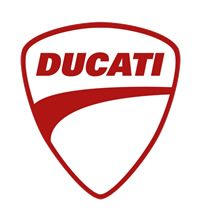


Photos: Ducati Desmosedici GP Sports Bike. Ducati Team rider Andrea Dovizioso. Images provided by & copyright © DUCATI.
Jerez de la Frontera, Spain, July 20, 2020 — After the long forced break of the Coronavirus emergency, the MotoGP World Championship finally kicked off this weekend at the Spanish circuit of Jerez de la Frontera with the first Grand Prix of the 2020 season. The event marked the end of the prolonged abstinence from track action for the two Ducati riders.
Andrea Dovizioso climbed on the third step of the rostrum at Jerez de la Frontera, where the Spanish Grand Prix took place this weekend. In what was a very challenging GP that put bikes and riders to the test due to the high temperatures, the Ducati Team rider managed his race strategy well.
As he got off the line from the third row of the grid, Andrea put himself in the fifth position already after a few laps, finding a steady pace immediately. Fourth towards the end of the race, the rider from Forlì was able to defend himself from Morbidelli’s and Pol Espargaro’s attacks. Dovizioso managed then to fill in the gap on Jack Miller and, with two laps to go, he went past the Australian rider of the Pramac Racing Team, claiming the third spot on the podium.
Dovizioso’s third place today represents his best result in the premier class at the Jerez Circuit, while for Ducati, it is the fifth third place conquered at the Spanish race venue.
Despite still not being 100% fit and suffering some neck and back pain after Wednesday’s crash, his teammate Danilo Petrucci was able to end a tough weekend with a top-ten result by finishing ninth in today’s race.
At the end of the first Grand Prix of the 2020 MotoGP season, Ducati occupies the second position in the Manufacturers’ Standings, while the Ducati Team is second in the Team Standings.
Andrea Dovizioso (#04 Ducati Team) - 3rd
“This podium is like a victory for me. It was a challenging race, and I didn’t think I could get this result, but luckily I didn’t give up until the end and managed not to make any mistakes. In this morning’s Warm-Up, the team did a great job, as they improved my feeling with the Desmosedici GP, giving me the chance to be constant today in the race. Unfortunately, I still didn’t feel completely comfortable on the bike, and, above all, I lacked speed. Surely, thanks to the feedback of this race, we will be more competitive in the next GP, which will be held again here in Jerez”.
Danilo Petrucci (#9 Ducati Team) - 9th
“It was a tough race for me. I am confident to have the potential to stay with the other Ducati bikes and fight for the top five positions”.
The Ducati Team will be back again at Circuito de Jerez - Àngel Nieto for the Andalusian Grand Prix, from 24th- 26th July 2020.
Rider information
Andrea Dovizioso
Bike: Ducati Desmosedici GP
World Titles: 1 (125cc, 2004)Danilo Petrucci
Bike: Ducati Desmosedici GP
First Win: Italy 2019 (MotoGP)
Circuit information
- Country: Spain
Name: Circuito de Jerez - Ãngel Nieto
Fastest Lap: Márquez (Honda), 1:38.051 (162,3 km/h) - 2019
Circuit Record: Quartararo (Yamaha), 1:36.880 (164,3 km/h) - 2019
Top Speed: Iannone (Ducati), 295,9 km/h - 2015
Track Lenght: 4,423 km
Race distance: 25 laps (110,6 km)
Corners: 13 (5 left, 8 right)
2019 Results
- Podium: 1st Márquez (Honda); 2nd Rins (Suzuki), 3rd Viñales (Yamaha)
Pole Position: Quartararo (Yamaha) 1:36.880 (164,3 km/h)
Fastest lap: Márquez (Honda) 1:38.051 (162,3 km/h)
Founded in 1926, Ducati has produced sports bikes equipped with Desmodromic engines. Ducati sports bikes are a combination of innovative design and cutting-edge technology. Ducati - which in 2016 marked its 90th anniversary - is based in Borgo Panigale, in Bologna, Italy. Ducati officially participates in the MotoGP World Championship and the Superbike World Championship.
Source: Ducati
|GlobalGiants.Com|
Despite the unfortunate end to his race, @marcmarquez93 produced yet another heroic performance on Sunday! 💪
— MotoGP™ðŸ (@MotoGP) July 21, 2020
Watch his extraordinary comeback! 💨#SpanishGP 🇪🇸 pic.twitter.com/ykmPzDGgqt







Edited & Posted by the Editor | 5:12 AM | View the original post
July 20, 2020
Oxford University coronavirus vaccine produces a robust immune response, reveals a new study.
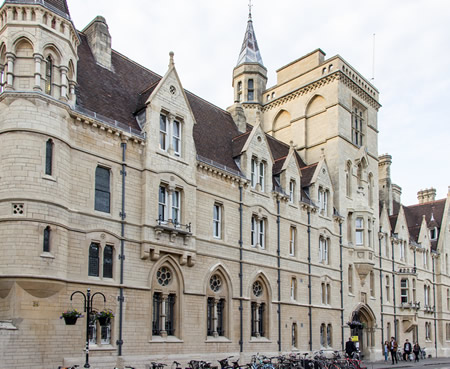
Photo: Balliol College, University of Oxford, Oxford, England. Image Credit: Billy Wilson.
Oxford, July 20, 2020 — A team of scientists at Oxford University’s Jenner Institute and Oxford Vaccine Group has taken the next step towards discovering a safe, effective, and accessible vaccine against coronavirus.
The results published in The Lancet confirmed a single dose of AZD1222 resulted in a four-fold increase in antibodies to the SARS-CoV-2 virus spike protein in 95% of participants one month after injection. The results indicate no early safety concerns. The vaccine induces robust immune responses in both parts of the immune system.
The vaccine provoked a T cell response within 14 days of vaccination (white blood cells that can attack cells infected with the SARS-CoV-2 virus), and an antibody response within 28 days. Antibodies can neutralize the illness so that it cannot infect cells when initially contracted.
During the study, participants who received the vaccine had detectable neutralizing antibodies, which have been suggested by researchers as necessary for protection, and these responses were most potent after a booster dose, with 100% of participants’ blood having neutralizing activity against the coronavirus. The next step in studying the vaccine is to confirm that it can effectively protect against SARS-CoV-2 infection.
Professor Andrew Pollard, Chief investigator of the Oxford Vaccine Trial at Oxford University, said: “The interim Phases I and II data for our coronavirus vaccine shows that the vaccine did not lead to any unexpected reactions. It had a safety profile similar to previous vaccines of this type. The immune responses observed following vaccination are in line with what we expect will be associated with protection against the SARS-CoV-2 virus. However, we must continue with our rigorous clinical trial program to confirm this. We saw the strongest immune response in participants who received two doses of the vaccine, indicating that this might be a good strategy for vaccination.”
During the Phases I and II trials, Oxford evaluated the vaccine in more than 1,000 healthy adult volunteers aged between 18 and 55 years in a randomized controlled trial. A subset of these volunteers (10 people) received two doses of the vaccine. Between April 23, 2020, and May 21, 2020, 1077 volunteers, received the vaccine ChAdOx1 nCoV-19 or a placebo MenACWY vaccine. There were no serious adverse health events related to ChAdOx1 nCoV-19.
These encouraging results support further evaluation of this candidate vaccine in our ongoing large-scale Phase III program, which is still needed to assess the vaccine’s ability to protect people from COVID-19, the University stated.
The University of Oxford is working with the UK-based global biopharmaceutical company AstraZeneca for further development, large-scale manufacture, and potential distribution of the Covid-19 vaccine, with plans for clinical development and production of the Oxford vaccine progressing globally. The project has been further spurred by £84 million of Government funding to help accelerate the vaccine’s growth.
“We are encouraged by the Phases I and II interim data showing AZD1222 was capable of generating a rapid antibody and T-cell response against SARS-CoV-2. While there is more work to be done, today’s data increases our confidence that the vaccine will work. It allows us to continue our plans to manufacture the vaccine at scale for broad and equitable access around the world,” said Mene Pangalos, Executive Vice President of BioPharmaceuticals Research and Development at AstraZeneca.
Oxford and AstraZeneca are collaborating with clinical partners worldwide as part of a global clinical program for the trial of the Oxford vaccine. The comprehensive plan includes a Phase III trial in the US enrolling 30,000 patients, a pediatric study, and Phase III trials in low-to-middle income countries like Brazil and South Africa.
AstraZeneca remains committed to fulfilling its commitment for broad and equitable access to the vaccine, should late-stage clinical trials prove successful. So far, we have promised to supply more than 2 billion doses of the vaccine to the UK, US, Europe’s Inclusive Vaccines Alliance (IVA), the Coalition for Epidemic Preparedness (CEPI), Gavi the Vaccine Alliance and Serum Institute of India.
Business Secretary Alok Sharma said: “Today’s results are extremely encouraging, taking us one step closer to finding a successful vaccine to protect millions in the UK and worldwide. Backed by £84 million Government investment for the vaccine’s development and manufacture, the agility and speed with which the University of Oxford has worked is outstanding. I am very proud of what they have achieved so far.”
Kate Bingham, Chair of the UK’s Vaccine Taskforce, said: “The UK is fortunate to have such outstanding academic innovators working alongside the highly experienced global team at AstraZeneca. This partnership is working at exceptional speed to demonstrate the safety and clinical effectiveness of the vaccine in protecting people against COVID-19 infection.”
Source: The University of Oxford
|GlobalGiants.Com|
— The editor is a holder of an Oxford Alumni Card.







Edited & Posted by the Editor | 1:44 PM | View the original post
July 18, 2020
India's University Grants Commission updates the Press on the Latest Position on Terminal Semester(s)/Final Year Examinations by the Universities.
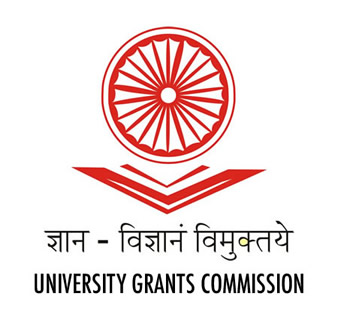
New Delhi, India. July 18, 2020 — University Grants Commission (UGC), India, has updated the Press on the latest position on Terminal Semester(s)/Final Year Examinations by the Universities.
The office of the Secretary, UGC, has provided the Press with the following status report:
• Terminal Semester(s)/Final Year Examinations by the Universities.
Examinations are an integral part of the education system and measure students’ learning, knowledge, skills, and other competencies. The performance in tests contributes to merit, lifelong credibility, wider global acceptability for admissions, scholarships, awards, placements, and better prospects.
A large number of best universities across the world, including the US, UK, Canada, Germany, Australia, Singapore, Hong Kong, and other countries, have conducted or are conducting examinations by giving various options such as Online/Offline/Blended or other alternative forms of tests.
To safeguard the more considerable interest of the students related to their academic and career progression globally, the UGC issued Guidelines on Examinations and Academic Calendar on April 29, 2020, mentioning that for the students of Terminal Semester(s)/Final Year Examinations may be conducted between July 1-15, 2020.
Because of emerging COVID-19 pandemic situation, it wasn’t easy to hold the examinations in July 2020, therefore, as per the directions of Ministry of Home, Ministry of Human Resources Development, and the report of the Expert Committee, UGC issued Revised Guidelines for Examination and Academic Calendar on July 6, 2020.
Accordingly, the Universities were required to chart out a plan for completion of the terminal semester/final year examinations by the end of September 2020 in offline (pen & paper)/online/blended (online + offline) mode following the prescribed protocols/guidelines related to COVID-19 pandemic.
UGC had told the Universities that they are not to put any student to any inconvenience/ disadvantage. Therefore, in case a student of the final semester/final year is unable to be present in the University’s examination for any reason, he/she may be allowed to appear in special tests for the relevant course(s)/paper(s) conducted as and when feasible.
UGC, through its letter of July 8, 2020, also communicated the Standard Operating Procedure (SOP) for Conduct of Examinations as suggested by the Ministry of Human Resources Development.
Recently, universities were approached to inform the status of the conduct of the examination. Out of 945 Universities (as per the list maintained by UGC till 01-06-2020), the responses were obtained from 755 Universities (120 Deemed Universities, 274 Private Universities, 40 Central Universities, and 321 State Universities). UGC is gathering related information from the remaining Universities.
Out of the 755 Universities, 560 Universities have either conducted the examination or are planning to do so. Details are as follows:
(i) 194 have already conducted tests (online/offline);
(ii) 366 are planning to conduct examinations (on-line/off-line/blended mode) in August/September.
Also, the first batch of the 27 newly established Private Universities is yet to become eligible for the final examination.
Source: University Grants Commission
|GlobalGiants.Com|
August 6, 2020.
UPDATE FROM UGC
The University Grants Commission (UGC) is organizing a Conclave on Transformational Reforms in Higher Education on August 7 (Friday), 2020, from 10.00 AM to 04.00 PM in virtual mode. The Prime Minister of India, Narendra Modi, would deliver the Inaugural Address.
……………………………………….
August 10, 2020.
UPDATE FROM UGC
“If exams aren’t conducted, students can’t get a degree. That’s the law.” — UGC.
Solicitor General Tushar Mehta, appearing for the University Grants Commission (UGC) in the Supreme Court on Monday, said students must continue to prepare for the exams. Mehta added, “If exams aren’t conducted, students can’t get a degree. That’s the law.”
Solicitor General Mehta questioned “how can states cancel exams and expect UGC to confer degree” when the UGC “is the only body to confer degrees.”
……………………………………….







Edited & Posted by the Editor | 12:37 PM | View the original post
National Geographic Society Announces Spring 2020 Young Explorers.
Twenty-two young leaders worldwide receive funding to address climate change, single-use plastic pollution, the COVID-19 pandemic, and other global challenges.

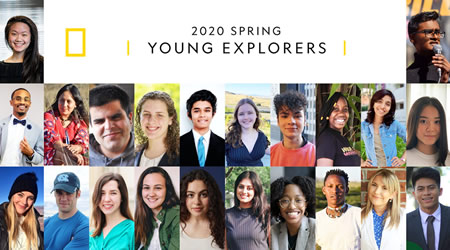
Photo: The National Geographic Society announces its spring 2020 Young Explorers. Twenty-two young leaders from around the world receive funding to address climate change, single-use plastic pollution, the COVID-19 pandemic, and other global challenges.
WASHINGTON, July 17, 2020 — The National Geographic Society has announced the spring 2020 cohort of Young Explorer grantees. These 22 young people, between the ages of 16 and 26, represent six countries and are engaged in impact-driven efforts ranging from scientific innovation and conservation to education, civic engagement, storytelling, and more— all developing solutions to pressing problems within their communities.
“At the National Geographic Society, we believe young leaders are in a category all their own. They are a global community of young people with empathy, tenacity, unbridled passion. They have an insatiable drive to seek solutions to build a sustainable future and thriving planet,” said Vicki Phillips, Executive Vice President and Chief Education Officer at the National Geographic Society. “They see profound possibilities to make a difference in the world, and they choose to do something about it with confidence, courage, and conviction.”
Seven of the Young Explorers are leveraging their efforts to respond to the challenges of the COVID-19 pandemic. For instance, Katie Stagliano, who founded Katie’s Krops, provides meals to South Carolina families struggling economically during the epidemic. In contrast, Chris Suggs, who founded Kinston Teens, organized a drive-through crisis relief giveaway that served 4,000 North Carolina families the food, cleaning supplies, and other essential items.
Young Explorers are nominated and later selected by the National Geographic Society through a competitive, multi-tiered application process. In addition to funding, Young Explorers receive skill-building, leadership development training, and networking opportunities to collaborate with their peers.
The spring 2020 Young Explorers are:
- Aldrin Aujero, 19, of the Philippines, founded EarthSAVERs, which conducts service initiatives to underserved public schools in Metro Manila.
- Neil Deshmukh, 18, of the United States (Pennsylvania) founded PlantumAI, which uses artificial intelligence technology to promote crop health.
- Thanasi Dilos, 17, of the United States (New York), who co-founded Civics Unplugged, provides micro-grants and training for youth-led civic projects.
- Lauren Gibson, 25, of the United States (Indiana), who founded Carmel Green Teen Micro-Grant Program to provide mentorship and funding for youth seeking to plan and carry out their environmental projects.
- Liza Goldberg, 18, of the United States (Maryland), who works with NASA and Google Earth on research to curb climate change.
- Zoë Jenkins, 16, of the United States (Kentucky), who launched the Get Schooled podcast focusing on problems and solutions in education.
- Merrit Jones, 22, of the United States (South Carolina), who is the president of Student Voice, a coalition of youth-led organizations.
- Peyton Klein, 18, of the United States (Pennsylvania) founded the Global Minds Initiative, which seeks to combat discrimination and promote inclusion in schools.
- Pothunuri Laya, 19, of India, who has developed several environment-preserving inventions, and is studying the viability of converting locusts, which threaten food security in vulnerable parts of the world, as a food source.
- Ashley Lin, 17, of the United States (Washington), founded Project Exchange to promote cross-cultural learning experiences for high school and college students.
- Tiassa Samayin Mutunkei, 19, of Kenya, founded Teens4Wildlife to help African youth discover the value of Africa’s wildlife and protect it.
- Joe Nail, 24, of the United States (North Carolina), who co-founded Lead For America, which provides recent college graduates with fellowships in local government.
- Shelby O’Neil, 19, of the United States (California), who created Jr. Ocean Guardians to host beach clean-ups and reduce plastics use.
- Kevin Patel, 19, of the United States (California), founded One Up Action, which empowers marginalized communities to fight climate change.
- Shriya Rai, 22, of India, who founded Sashakt Bharat to provide a platform for India’s youth to start their environmental initiatives and positively shape their communities.
- Baylee Ritter, 23, of the United States (Illinois), founded RISE UP, a youth-led webinar series that connects, inspires and empowers young people around the globe through peer-to-peer training, networking, and skill-building.
- Kartik Sawhney, 26, of India, co-founded I-Stem, an organization that gives blind math and science students technical training, mentorship, and hands-on opportunities.
- Katie Stagliano, 21, of the United States (South Carolina), who founded Katie’s Krops, which empowers youth to start and donate the harvest from community gardens to help feed people in need.
- Chris Suggs, 20, of the United States (North Carolina), founded Kinston Teens to focus on youth engagement and rural development.
- Richard Turere, 19, of Kenya, who invented Lion Lights to protect crops from local predators.
- Diana Griselle Zendejo Valle, 24, of Mexico, takes photographs of how humans establish a relationship with nature and how they use nature photography as an education tool.
- Celestine Wenardy, 17, of Indonesia, Editor-in-Chief of the Young Scientist Journal, has researched affordable methods for non-invasive blood glucose concentration monitoring for people with diabetes.
Over the past two years, the National Geographic Society has collectively awarded more than $280,000 in funding to Young Explorers. The Young Explorer grants build on the National Geographic Society’s 132-year history of investing in bold individuals with transformative ideas—innovative scientists, explorers, educators, and storytellers.
“We are immensely proud to support these young people on their journey, to help elevate their voices and accelerate and amplify their work,” said Phillips. “When our world is facing significant challenges, these Young Explorers show us that we have many reasons to be hopeful about the future.”
The National Geographic Society is a global nonprofit organization that uses the power of science, exploration, education, and storytelling to illuminate and protect the world’s wonder.
Source: National Geographic Society
|GlobalGiants.Com|







Edited & Posted by the Editor | 3:05 AM | View the original post
July 17, 2020
MG (Morris Garages) Motor India launches HECTOR PLUS, India's First 6-Seater SUV with Panoramic Sunroof.

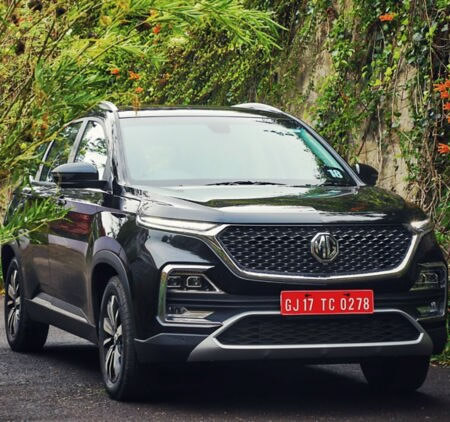

Gurugram, July 16, 2020: MG (Morris Garages) Motor India has launched the much-anticipated MG HECTOR PLUS. HECTOR PLUS, India’s first 6-seater internet SUV with a panoramic sunroof, will be manufactured at the carmaker’s state-of-the-art manufacturing facility at Halol near Vadodara in Gujarat.
The latest addition to the MG HECTOR family, the 6-seater HECTOR PLUS, comes with luxurious and comfortable captain seats in the middle row. The 6-seater SUV features a very appealing look with its all-new dual-tone Smoked Sepia Brown interiors, stylish new headlamps, a new Chrome-Studded Front Grille, and a Chit-Chat feature on i-SMART Next Gen interface. It also comes with other attractive features, including the all-new Smart Swipe, Front and Rear Bumpers, New Rear Tail Light Design, and Revised Skid Plates.
The carmaker has launched its one-month inaugural price offer until August 13, 2020. One can book the all-new HECTOR PLUS at any MG Dealership, on its website, or via the My MG Mobile App. The price will increase by up to INR 50,000 after that, depending on the trim level, the company said.
Speaking on the launch, Rajeev Chaba, President, and Managing Director, MG Motor India, said, “We entered the Indian automobile market in 2019 with MG HECTOR. Our vision has been to touch the lives of car owners in India by offering them the world’s best technology, including connected mobility. The launch of MG HECTOR PLUS is a new milestone in our journey to serve customers with top-notch products and services. The 6-seater internet SUV is a blend of luxury and comfort aided by technology to provide the perfect family moments to all our customers.”
MG HECTOR PLUS offers both MG Shield and the MG Shield+ to provide an assuring experience to its customers. Under MG Shield, MG extends the Free-three’ 5s’, i.e., 5-year/Unlimited KMs warranty, 5-year Roadside Assistance, and Free Labour Charges for the first five services. All these elements under ‘MG Shield’ would enhance the MG ownership experience and provide complete peace of mind to MG customers. The 6-seater SUV’s Total Cost of Ownership (TCO) is among the lowest in the segment. It is 45 paise per kilometer for its petrol variants and 60 paise per kilometer for the diesel ones (calculated up to 100,000 KMs of usage). MG HECTOR PLUS further offers the best-prepaid maintenance plans starting at INR 8,000 for three years with its Classic package.
As part of its customers’ commitment, MG has also extended its contact-free technology suite called ‘Shield+.’ It builds on four cornerstones of ‘Customer Convenience,’ ‘Sanitization,’ ‘Contactless Services,’ and ‘Assurance.’
Founded in the UK in 1924, Morris Garages vehicles were world-famous for their sports cars, roadsters, and cabriolet series. MG vehicles were much sought after by many celebrities, including the British Prime Ministers and even the British Royal Family, for their styling, elegance, and spirited performance. The MG Car Club, set up in 1930 at Abingdon in the UK, has thousands of loyal fans, making it one of the world’s largest clubs for a car brand. MG has evolved into a modern, futuristic, and innovative brand over the last 96 years. MG Motor India has its car manufacturing plant at Halol in Gujarat.
Source: MG (Morris Garages) Motor India
|GlobalGiants.Com|







Edited & Posted by the Editor | 1:59 AM | View the original post
July 16, 2020
TISSOT Seastar 1000 Professional has in-depth Excellence
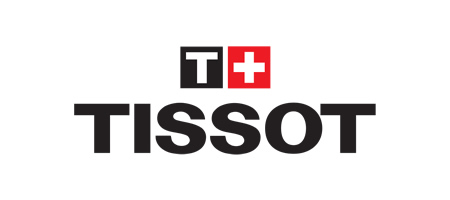


According to Tissot, Seastar 1000 Professional limited edition fully satisfies the criteria of the ISO 6425 standard governing professional diving watches. This all-steel automatic chronograph validates all the conditions specified by the standard.
The Tissot Seastar 1000 Professional has a self-winding chronograph movement. It has a small second hand at 9 o’clock and a 30-minute and 12-hour chronograph totalizers at 12 o’clock and 6 o’clock. It also indicates the day and date and has a comfortable 60-hour power reserve, rare for a diving watch.
The Tissot Seastar 1000 Professional comes with a steel bracelet with three links, burnished in the center, and buffed to a satin finish on the sides. It is closed by a folding clasp specially designed for diving purposes.
Source: TISSOT
|GlobalGiants.Com|







Edited & Posted by the Editor | 10:44 AM | View the original post
July 15, 2020
Trump Administration Revokes Rules on International Students after Court Challenges.
The policy would have barred international students from living in the U.S. while conducting coursework entirely online.
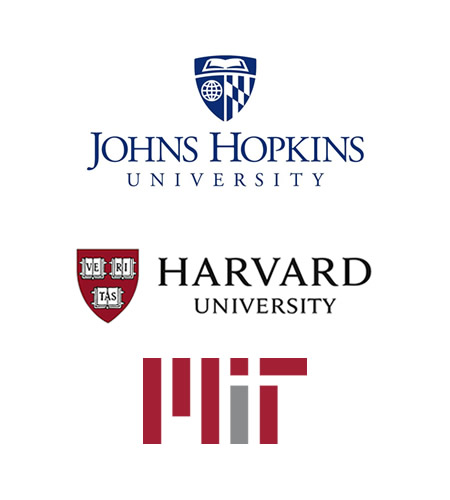
BALTIMORE, July 15, 2020 — In a swift reversal of guidance first shared just eight days ago, the Trump administration on Tuesday abandoned plans to impose new limitations on the conditions under which international students can remain in the country to study at U.S. colleges and universities.
Under a policy announced July 6, students would be stripped of or denied student visas if their coursework was entirely online, an abrupt shift that threatened to impact the lives of the nearly 5,000 international students at Johns Hopkins and more than 1 million across the country.
Johns Hopkins filed a legal challenge to the policy last week and had a hearing on the matter scheduled for 11:30 a.m. Wednesday. Today’s announcement that the U.S. Administration has rescinded the plan appeared during a trial of a similar complaint filed by Harvard and MIT, a case in which JHU filed an amicus brief. The notification reinstates an earlier policy implemented in March that allows international students with student visas to take all their classes online and remain in the country legally.
Johns Hopkins University (JHU) President Ronald J. Daniels said in a message to the university community Tuesday night that Hopkins would leave its complaint open for now, but acknowledged it might be moot. The return to an earlier policy does, however, cast doubt on the ability of new and transfer students outside the U.S. to come to the country to begin studies.
“For generations, the world’s most innovative and ambitious people have flocked to this nation for the opportunities it offers,” Daniels wrote. “America’s colleges and universities have been a beacon for those whose talent and drive have fueled the discoveries that foster social progress and create economic opportunity.”
Source: Johns Hopkins University
|GlobalGiants.Com|







Edited & Posted by the Editor | 3:08 PM | View the original post
Four Hundred Million New Jobs by 2030 if Businesses Prioritize Nature, Says World Economic Forum.
The report finds putting nature first is good for business and economic resilience.
Nature-positive solutions will create $10.1 trillion in business opportunities and millions of new jobs.
COVID-19’s impact is a stark reminder of our imbalance with the natural world, but the report shows businesses and governments’ opportunities to build back better.
Policy companion outlines how finance ministers can kick-start a nature-positive economy.

Photo: Scene at the World Economic Forum Annual Meeting 2020 in Davos-Klosters, Switzerland. 18 January 2020. Image provided by & Copyright © World Economic Forum/Mattias Nutt.
Geneva, Switzerland, 15 July 2020 - The global COVID-19 pandemic has caused unprecedented job losses and economic uncertainty. As governments and businesses look to stimulate growth, a new study from the World Economic Forum found that ‘nature-positive’ solutions can create 395 million jobs by 2030.
The Future of Nature and Business Report provides blueprints for businesses to tap into a $10.1 trillion business opportunity, focusing on nature-positive industry actions, meaning that they add value to nature.
The report reflects real-world examples where nature-positive results have improved business outcomes:
- In Indonesia, smart farming utilizing sensors and satellite imagery improved crop yields on average by 60%.
- In China, Suzhou Industrial Park’s green development has seen its GDP increase 260-fold partially through green growth.
- In Viet Nam, people living in coastal communities saw their incomes more than double following the restoration of critical mangroves.
“We can address the looming biodiversity crisis and reset the economy in a way that creates and protects millions of jobs,” said Akanksha Khatri, Head of the Nature Action Agenda, World Economic Forum. “Public calls are getting louder for businesses and government to do better. We can protect our food supplies, make better use of our infrastructure, and tap into new energy sources by transitioning to nature-positive solutions.”
• Food, land, and ocean use: What we eat and grow makes up around $10 trillion of global GDP and employs up to 40% of the worldwide workforce. Nature-positive solutions can create 191 million new jobs and $3.6 trillion of additional revenue or cost savings by 2030. Here are some examples:
Diversifying the diet: Some 75% of the world’s food comes from 12 plants and five animal species. Animal products provide 18% of calories but take up 80% of farmland. A more diversified diet of vegetables and fruits can create $310 billion in business opportunities annually by 2030.
Technology in large-scale farms: Over 4.3 million jobs and $195 billion in business opportunities can come from precision-agriculture technologies by 2030. With 40% improvements in yields expected, investments could yield returns of over 10%.
Retail: Every second, the world landfills or burns the equivalent of one garbage truck of textiles. It means that $500 billion is lost every year due to discarded clothing. Using more renewable inputs and reusing, refurbishing, and recycling clothes could lead to $130 billion in savings and prevent 148 million tonnes of textile waste by 2030.
Fishing: It takes five times the effort to catch the same amount of fish now as it did in 1950. If the ‘business as usual’ approach continues, wild fish stocks will decline by 15%. It will cost the industry $83 billion, as boats will have to travel further and fish deeper. Sustainable ecosystem management is one way to tap into a $40 billion opportunity for the maritime industry worldwide.
• Infrastructure and the built-environment: About 40% of global GDP comes from the environment we build - office buildings, homes, and transport. Nature-positive solutions can create 117 million new jobs and $3 trillion in additional revenue or cost savings by 2030. Here are some examples:
Smart buildings: Retrofitting systems and installing more efficient technology in new builds can save $825 billion by 2030. Switching to LEDs and substituting natural light alone could save over $650 billion by 2030. Green roofs can save on energy costs, mitigate flood risk, reduce air pollution, and even produce food. The market for these could grow 12% annually, reaching $15 billion by 2030.
Smart sensors: Reducing municipal water leakage could save $115 billion by 2030. Return on investments in water efficiency can be above 20%.
Waste management: With $305 billion in additional revenue opportunities, the global waste management market could double in 10 years with the right investments in South Asia, East Asia, and sub-Saharan Africa.
• Energy and extractives: The energy we produce and what we extract accounts for almost a quarter of global GDP and 16% of global employment. With energy demand growing, there is an opportunity to create 87 million jobs and $3.5 trillion in business opportunities by 2030. Here are some examples:
Mining and resource extraction: Improving resource recovery in mining can save $225 billion and reduce water usage by 75% in the next decade. New technologies and more mechanization could enhance material recovery rates by up to 50%.
Circular models in the automotive sector: Refurbishing and reusing automotive parts, such as transmissions, retains more value and uses less energy than recycling. The world can save some $870 billion by recovering manufacturing costs by 2030.
Renewables: By 2030, Renewable energy sources can provide opportunities of $650 billion, and investment returns more significant than 10%. Stimulus packages for solar and other commercialized renewables can generate millions of new jobs. Solar energy without subsidies matched fossil fuel costs in over 30 countries. By 2021, it could be cheaper than coal in China and India.
Doubling down on revenue streams: The land for renewable energy projects is three to 12 times the size of coal-powered ones. Some companies are developing high-rise photovoltaic power stations that combine animal husbandry and ecotourism, providing additional revenue streams on the same land plot.
• Guide for Finance Ministers
A policy companion outlines how governments can complement and enable businesses to act. Finance ministers can combine six cross-cutting policy measures to put the right incentives in place as part of stimulus packages and create jobs without destroying nature. They include better measurement of economic performance beyond GDP, incentives for innovation, improved spatial planning and management of marine and terrestrial assets, the removal of subsidies that endanger long-term job stability, investment in reskilling, and increased financial support for natural solutions.
• Quotes from World Economic Forum Partners
“We must use the crisis caused by the coronavirus pandemic as an opportunity to reset humanity’s relationship with nature. Investing in biodiversity and the environment offers the chance of building better economies and our resilience as a species,” said Carlos Alvarado Quesada, President of Costa Rica. “Costa Rica has shown that the transition to a carbon-neutral, nature-positive economy brings greater prosperity, jobs, and new developments. It’s time to mainstream this model.”
“We are entering into a historic decade of action to halt and reverse biodiversity loss by 2030 and address climate change. The business has a critical role to play in environmental stewardship of our planet,” said Inger Andersen, United Nations Under-Secretary-General and Executive Director of the UN Environment Programme. “They have the technology, innovation, and financing to make the shifts we need towards increased investment in nature’s infrastructure and nature-based solutions.”
“While there is still uncertainty in how COVID-19 will unfold, we must recognize this as an opportunity to accelerate efforts to put nature at the center of all decision-making,” said Alan Jope, Chief Executive Officer of Unilever. “There will be no jobs or prosperity on a dead planet!”
Source: World Economic Forum
|GlobalGiants.Com|







Edited & Posted by the Editor | 7:07 AM | View the original post
July 14, 2020
Blackboard to Host First Virtual BbWorld 2020.
Educators, administrators, and thought leaders to attend the Company’s free annual conference on July 21 & 22.

RESTON, Va., July 13, 2020 — Blackboard Inc., a leading education technology company for teaching, learning, and student engagement, will convene thousands of educators, administrators, thought leaders, and EdTech experts from across the globe on July 21 and 22 for BbWorld 2020, its premier global EdTech conference. For the first time, the meeting will be virtual and free, enabling the global education community to gather, learn, share, and inspire one another during this unprecedented time.
“We are thrilled to bring together the global education community to share lessons learned and best practices for driving learner success in this critical time of rapid digital transformation,” said Blackboard Chairman, CEO and President Bill Ballhaus. “We look forward to creating an immersive virtual experience and inviting new voices to join our discussion about the new education paradigm.”
BbWorld will feature more than 100 sessions on the most pressing topics for higher education, K-12, and business and government clients.
Throughout the two-day event, BbWorld would invite the participants into the “Galaxy of Learning,” a 3D, interactive experience, gaining access to:
Keynote speeches by Manny Scott, author, and student achievement advocate; Dr. Michael K. Moore, Vice President for Academic Affairs for the University of Arkansas System and Chief Academic and Operating Officer for eVersity; and Bill Ballhaus, Chairman, Chief Executive Officer and President of Blackboard.
A student panel discussion moderated by Dr. Michael K. Moore on students’ unique perspectives on the rapid shift to remote learning and their challenges to success in this new educational landscape.
More than 100 sessions focused on sharing best practices for online learning, transforming remote learning programs into mature online programs, leveraging data, and Universal Design for Learning principles to drive student success. The sessions would also focus on improving the learner experience through innovation and driving accessibility and inclusivity.
The Experiential Discovery Hall: Here, attendees can mingle with Blackboard experts, explore technologies, get involved with the Blackboard Community, and visit the UXD Lab.
The Educator Lounge: Here, techies, thought leaders, and educators can network.
The Lunar Lounge: Here, attendees can access stretching, yoga, and boxing classes at their leisure, play games, or tune into a puppy cam.
A closing concert featuring the Cold War Kids.
Blackboard says its mission is to advance learning in partnership with the world’s education community so that more learners, educators, and institutions can realize their goals today and prepare for tomorrow.
Source: Blackboard, Inc.
|GlobalGiants.Com|







Edited & Posted by the Editor | 2:36 PM | View the original post
July 13, 2020
Johns Hopkins files Lawsuit to block new U.S. rules on International Students.
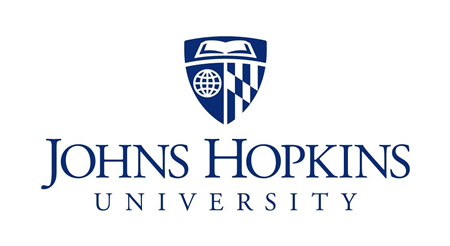
BALTIMORE, July 12, 2020 — Johns Hopkins University filed suit in federal court Friday to stop a Trump administration rule change that would severely impact nearly 5,000 international students at the University. The decision to abruptly rescind accommodations for online learning during the COVID pandemic is unlawful and fails to consider the many complexities of meeting our educational mission while also protecting our community’s health, the University said.
The University filed the suit in the Federal District Court for Washington, D.C., which has significant expertise in handling challenges against unlawful action by the federal government. Johns Hopkins joins other litigation related to the new rule filed by Harvard, MIT, and the University of California. Johns Hopkins’ plans for a hybrid, online/in-person model for some of its divisions present the broadest array of issues for the court to consider.
“The administration’s decision is gratuitous, cruel and inimical to what this country is about,” said Johns Hopkins President Ronald J. Daniels. “The University was left with no option but to bring an emergency lawsuit in federal court to stop the administration from pushing ahead with an illegal and unconstitutional directive. If the directive is permitted to stand, it would fundamentally undermine the educational freedoms and humanitarian values that animate higher education in our country.”
In the spring, when the pandemic was first taking hold, the universities, including Johns Hopkins, were forced to pivot to online education swiftly. The Trump administration appropriately responded by relaxing visa restrictions so that international students could remain in the United States while taking classes remotely. But on Monday, even as new coronavirus cases were hitting record levels in the United States, the administration reversed itself without warning, saying such students would not be allowed into the country if their course load was entirely online. Those already in the country could be required to leave within ten days of beginning ‘online only education’, a burden under any circumstances but much more so now given the heavy restrictions on international travel.
In its complaint, the University alleges that the administration’s actions are unlawful in several ways:
- The Trump administration made the rule arbitrarily and capriciously in violation of the Administrative Procedures Act;
- It rescinds a rule the administration had indicated would stay in place through the end of the COVID emergency;
- The government did not provide the required notice or opportunity to comment;
- It failed to provide due process;
- It violated universities’ constitutionally protected academic freedom.
Johns Hopkins said it spent months meticulously planning for the fall semester based on its leading authorities’ expert guidance in medicine and public health. It said it seeks to balance the best opportunities for its students to continue their education and research with an unwavering commitment to safeguarding their health and safety. “Our approaches vary by program, with some planning entirely online courses and others, including our undergraduate program, planning a hybrid approach mixing online and in-person elements,” the University added.
The Trump administration’s sudden announcement upends that careful consideration, the University explained. It neither accounts for the risks associated with switching to an all in-person approach nor the possibility that we may have no choice but to revert to all online classes if the pandemic takes a turn for the worse. Importantly, the administration’s actions may force students to choose between increased exposure to a deadly virus and maintaining their visa status.
• “Johns Hopkins University has the responsibility to protect its students, faculty, and staff. It has the scientific expertise to determine how it will execute its mission of research and education safely without government intervention,” the institution stated.
“Johns Hopkins has a century-long commitment to international collaboration in scholarship and research. The mix of students and faculty of different backgrounds and outlooks advances knowledge and discovery in our laboratories and contributes to the intellectual growth of all our students.”
“This unjust and discriminatory attack on international students cuts to the core of our education and research mission. It cannot be allowed to stand,” the University concluded.
Source: Johns Hopkins University
|GlobalGiants.Com|







Edited & Posted by the Editor | 8:21 AM | View the original post
Groupe Renault and Google Cloud partner to accelerate Industry 4.0
Groupe Renault teams up with Google Cloud to accelerate the digitization of its production facilities and supply chain.
This collaboration brings Google Cloud’s strength in machine learning and artificial intelligence and Renault’s expertise in automotive manufacturing to create new industrial solutions.
The two companies also intend to start a program to grow Groupe Renault employees’ digital skills and competencies.


Photo: 2020 - INDUSTRY 4.0 - Renault Valladolid (Spain) Plant. Image provided by & Copyright © Groupe Renault / Ignacio Nacho GALLEGO.

Photo: 2020 - INDUSTRY 4.0 - Renault Flins (France) Factory. Image provided by & Copyright © Groupe Renault / Jean-Brice LEMAL/Planimonteur.
PARIS and SUNNYVALE, Calif., July 11, 2020 — Groupe Renault and Google Cloud today announced a new industrial and technology partnership to accelerate the digitization of Groupe Renault’s industrial system and Industry 4.0 transformation.
• Digitize manufacturing plants and develop industry solutions
A recognized contributor to Industry 4.0, Groupe Renault has been developing its digital platform since 2016 to connect and aggregate technical data from 22 Group sites worldwide (representing 76% of vehicle production) and more than 2,500 machines. This new partnership with Google Cloud aims to optimize Groupe Renault’s wholly-owned and independently operated industrial data management platform.
Google Cloud’s solutions and experience in smart analytics, machine learning (ML), and artificial intelligence (AI) will enable Groupe Renault to improve its supply chain and manufacturing efficiency, production quality, and environmental impact through energy savings.
These improvements will ultimately foster the development of new vertical solutions for the automotive industry.
• Develop digital skills
Employee training is also an essential part of this new partnership. Groupe Renault and Google Cloud plan to build a unique and scalable program to enhance Renault process engineering, manufacturing, and IT teams’ skills via coworking, training, and enablement sessions with the Google team. This program’s objective is to enhance a data-driven culture that is an essential part of Renault employees’ daily professional lives, in operational as much as in decision-making processes.
“This collaboration is a perfect illustration of Groupe Renault’ digital strategy, applied here to the industrial field. This agreement and the commitment of our IT, manufacturing, and supply chain management teams will allow us to accelerate the deployment of our Industry 4.0 plan. We have designed the plan to transform and connect our production sites and logistics processes worldwide to improve our standards of excellence in performance. This partnership is also an asset for Groupe Renault employees who will benefit from high-level training in digital data management.” underlined José Vicente de Los Mozos, Director of Manufacturing and Logistics, Member of Groupe Renault’s Executive Committee.
“The automotive industry has innovation in its DNA, and there is immense potential for digital technology to have a significant impact on production. We are proud to be partnering with Groupe Renault to help revolutionize the future of automotive manufacturing and power the next generation of supply chain excellence,” added Thomas Kurian, CEO of Google Cloud.
Groupe Renault has manufactured cars since 1898. Today, it is an international multi-brand group that sold close to 3.8 million vehicles in 134 countries in 2019. Groupe Renault has 40 manufacturing sites, 12,700 points of sales, and more than 180,000 people. To address the significant technological challenges of the future, Groupe Renault is focusing on international expansion while continuing to pursue its profitable growth strategy. To this end, it is drawing on the synergies of its five brands (Renault, Dacia, Renault Samsung Motors, Alpine, and LADA), electric vehicles, and its unique alliance with Nissan and Mitsubishi Motors. With a 100% Renault owned team committed to the Formula 1 World Championship since 2016, the brand is involved in motorsports, a real vector for innovation and awareness.
Source: Groupe Renault.
|GlobalGiants.Com|







Edited & Posted by the Editor | 2:56 AM | View the original post
July 12, 2020
Indiaspora Business Leaders List recognizes Executives of Indian Heritage who lead Global Corporations.
- Indian diaspora leaders reach the pinnacle of corporate success in higher numbers than ever before, with many using their platforms to advocate for social change.

San Francisco, CA | Washington, DC. July 11, 2020 — Indiaspora, a nonprofit organization of global Indian diaspora leaders from various backgrounds and professions, released today their inaugural list, honoring executives of the Indian diaspora leading the most significant global corporations in 2020.
Drawing from the latest editions of Fortune and Forbes U.S. and global lists, the Indiaspora Business Leaders List includes more than 50 executives who are serving at the helm of their respective company in the role of Chief Executive Officer, President, or Chairman of the Board.
The list includes immigrants from India as well as professionals born in countries such as Uganda, Ethiopia, England, and the U.S. The companies that the executives lead have headquarters in ten different countries, including the U.S., Canada, England, and Singapore.
“This inaugural list shares so many shining examples of the quintessential immigrant story,” said Indiaspora Board member Rajan Navani, Vice Chairman and Managing Director of Jetline Group of Companies. “Hardworking, enterprising, and innovative, these executives have achieved the highest success in their fields, often drawing on their Indian heritage to help guide and ground them along the way. No doubt they will inspire generations to come.”
Companies on the Indiaspora Business Leaders List collectively employ more than 3.6 million worldwide and account for a combined USD 1 trillion in revenue and USD 4 trillion in market capitalization.
The companies’ collective shares also outperformed the stock market, averaging 21 percent returns during the leaders’ tenures on the list, compared to the S&P 500, which offered 9 percent returns during the same time frame.
“It is gratifying to see the growing impact of individuals from the Indian community on business on a global scale,” said Indiaspora Board Member Arun Kumar, Chairman, and CEO at KPMG India. He also served as Assistant Secretary of Commerce in the Obama administration. “I have had the opportunity to work with several of the individuals on our 2020 Business Leaders List in a professional and personal capacity and can attest to their dynamism as leaders not only of their companies but also for the larger diaspora community. Besides, many of them bring a remarkable sensitivity to issues relating to social change.”
The 2020 Indiaspora Business Leaders List represents 56 executives and 57 companies, as Raj Gupta, an Indiaspora member, serves as Chairman of two companies on the list, Aptiv, and Avantor.
“I’m amazed to see how far we’ve come in terms of representation in business. There used to be only a handful of us leading corporations,” said Raj Gupta, former CEO of Fortune 300 company Rohm and Haas. He is one of the first executives of the Indian diaspora to join the ranks of corporate leadership along with pioneers such as Indra Nooyi of PepsiCo and Dinesh Paliwal of Harman International. “Now that we are reaching prominence, I am eager to see how the next generation leaves its legacy.”
Several executives on the list have led their companies in advancing social change by addressing racial injustice, climate and sustainability justice, and the disproportionate effects of COVID-19 through policy and financial commitments.
Tech industry leader Sundar Pichai, CEO of Alphabet/Google, has announced new goals for racial equity, including improving leadership representation of underrepresented groups at Google, and an “economic opportunity package” for the Black community. Ivan Menezes, CEO of British multinational beverage alcohol company Diageo, also led his company in creating a $20 million social justice fund in America.
Several leaders’ companies have created or contributed to funds in response to COVID-19. Sunny Verghese’s Singapore-based agribusiness and supply chain company Olam International donated COVID-19 testing kits to Ghana’s government. Francis deSouza, head of gene analysis company Illumina, is developing a novel coronavirus test using sequencing technology.
“It’s inspiring to see so many leaders of Indian heritage playing a significant role in business and society,” said Ajay Banga, President and CEO of Mastercard. “Our culture and values are a common starting point (any chance we can get a bit more color here?). But it’s what we do with the opportunities presented to us that make a difference. When we lean into our diverse experiences to deal with challenges like the pandemic or racial injustice, we can have an even greater impact on the lives of those around us.”
The Indiaspora Business Leaders List also calls attention to the presence of a glass ceiling in which women, including Indian women, still face. Out of 1,000 companies represented on the Fortune 500 list, only 61 have women CEOs; the Indiaspora List has a marginally higher percentage of women, yet only accounts for five women out of more than 50 leaders.
Indiaspora has identified its honorees from these lists: Fortune 500 (which features 1,000 companies), Forbes Global 2000, Fortune Global 500, and the Forbes Largest Private U.S. Companies.
2020 Indiaspora Business Leaders List (Top 30)
Name — Company — Title
- Sundar Pichai — Alphabet/Google — Chief Executive Officer
- Satya Nadella —Microsoft — Chief Executive Officer
- Arvind Krishna — IBM — Chief Executive Officer
- Lakshmi Mittal — ArcelorMittal — CEO, Chairman
- Raj Subramaniam — FedEx — President, CEO
- Vivek Sankaran — Albertsons — President, CEO
- Vasant Narasimhan — Novartis — Chief Executive Officer
- Punit Renjen — Deloitte — Global Chief Executive Officer
- Bharat Masrani — TD Bank — CEO, Group President
- Mike Mohan — Best Buy — President
- Bob Patel — Lyondell Basell Industries — Chief Executive Officer
- Rajeev Suri — Nokia — Chief Executive Officer
- Revathi Advaithi — Flex — Chief Executive Officer
- Sunny Verghese — Olam International Group — Chief Executive Officer
- Prem Watsa — Fairfax Financial — Chief Executive Officer
- Sanjay Mehrotra — Micron Technology — CEO, President
- Saum Sutaria — Tenet Healthcare — President, CEO
- Ajay Banga — Mastercard — CEO, Chairman-elect, President
- Ivan Menezes — Diageo — Chief Executive Officer
- Laxman Narasimhan — Reckitt Benckiser Group — Chief Executive Officer
- Sonia Syngal — Gap Inc. — Chief Executive Officer
- Siva Sivaram — Western Digital — President
- Kevin Lobo — Stryker — Chief Executive Officer
- Piyush Gupta — DBS Group — Chief Executive Officer
- Raj Gupta — Aptiv/Avantor — Chairman of the Board
- Bob Pragada — Jacobs Engineering — Co-President, CEO
- Shantanu Narayen — Adobe — Chairman, CEO, & President
- Rajiv Malik — Mylan — President
- Aloke Lohia — Indorama Ventures Group — Chief Executive Officer
- Niraj Shah — Wayfair — Co-Chairman, President & CEO
Indiaspora is a nonprofit organization established to transform the Indian diaspora’s success into a meaningful impact worldwide. The members form a robust network of global leaders who serve as a platform to build healthier communities with a culture of giving and inspiring social change.
Source: Indiaspora
|GlobalGiants.Com|







Edited & Posted by the Editor | 3:31 AM | View the original post
July 10, 2020
Cycles4Change Challenge for Cities in India.
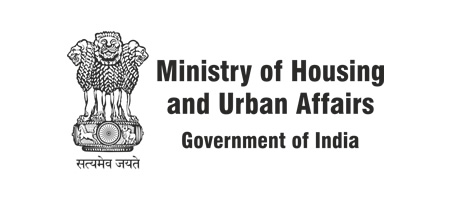

New Delhi | July 10, 2020 — The Smart Cities Mission, Ministry of Housing and Urban Affairs, Government of India, today opened the Registration for India Cycles4Change Challenge. Mr. Hardeep Singh Puri, Minister of State, Housing and Urban Affairs, had launched the Challenge on June 25, 2020.
Over 450 participants, including CEOs of Smart Cities, Commissioners, City Officials, Civil Society Organizations, Experts, and Citizens, attended the Registration Applications Opening event.
The Challenge aims to help cities connect with their citizens and experts to develop a unified vision to promote Cycling. Municipalities are encouraged to collaborate with Civil Society Organizations, experts, and volunteers to create and implement their plans. Citizen collaboration will also be a key metric in the evaluation of proposals submitted by the cities.
Cities in India can access the Challenge and register here:
• The Challenge is open to all cities under the Smart Cities Mission, capital cities of States/UTs, and all cities with a population of more than 5 lakh.
• All eligible cities can register and submit their applications on the portal from July 10 to July 21.
The Challenge will run in two stages. Stage One will work until October, where cities will focus on piloting quick interventions to promote Cycling and developing a scale-up strategy. In October 2020, the Ministry will shortlist 11 towns. The shortlisted cities will receive Rs. 1 Crore award and guidance from national and international experts to further scale-up the initiatives.
• The Vision of the India Cycles4Change Challenge
Recent surveys indicate that the need for personalized forms of transport would increase as a response to COVID-19. The studies show that Cycling would increase by 50-65% as cities in India come out of lockdown. Cities around the world are leveraging the opportunity to expand their cycling networks and public bicycle-sharing systems. According to experts, increasing Cycling can help cities in a green economic recovery; investments in cycling infrastructure have economic benefits of up to 5.5 times the initial investment; Cycling for short distances can result in an annual gain of INR 1.8 trillion to the Indian economy.
“The Ministry of Housing and Urban Affairs is committed to helping cities develop high-quality transport systems that offer sustainable mobility options to their residents. I urge all cities to achieve a vision of safe and fun Cycling for everyone,” said Mr. Hardeep Singh Puri, Minister of State, Housing and Urban Affairs, India.
“We are proud to launch the India Cycles4Change Challenge with the ambitious goal of creating cycling-friendly cities across the country. Cycling can aid a green recovery from COVID-19 for the transport sector and create a golden age for active, sustainable, and efficient travel in our cities,” stated Mr. Durga Shanker Mishra, Secretary, Ministry of Housing and Urban Affairs.
Source: Ministry of Housing & Urban Affairs, India
|GlobalGiants.Com|







Edited & Posted by the Editor | 1:23 PM | View the original post
Lamborghini presents Sián Roadster: a limited edition, hybrid super sports car.
The limited-edition Roadster version of visionary V12 super sports car, combining groundbreaking hybrid technologies and design.


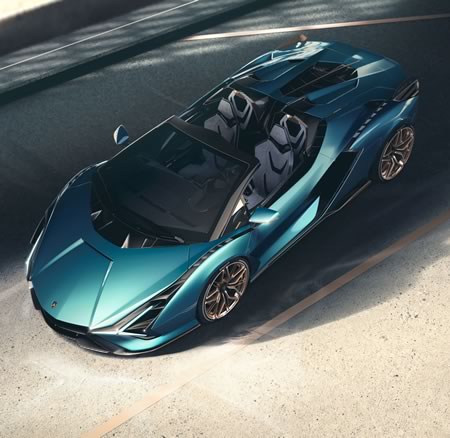
Sant’Agata Bolognese, 8 July 2020 - Automobili Lamborghini presents the Lamborghini Sián Roadster: a limited edition, open-top hybrid super sports car engineered around Lamborghini’s iconic V12 engine, with unique hybrid technologies and delivering unsurpassed Lamborghini and hybrid performance. The roofless design of the Sián Roadster puts an exclusive group of drivers in one of the most spectacular cockpits ever: always open to the sky; resonating with the inimitable V12 sound from the most potent Lamborghini engine to date; and experiencing extraordinary performance while reveling in the Sián Roadster’s role in Lamborghini’s route to future hybridization.
“The Sián Roadster encapsulates the spirit of Lamborghini,” says Stefano Domenicali, Automobili Lamborghini Chairman, and Chief Executive Officer. “It is the expression of breathtaking design and extraordinary performance, but most importantly embodies essential future technologies. The Sián’s innovative hybrid powertrain heralds the direction for Lamborghini super sports cars. The open-top Sián Roadster affirms a desire for the ultimate lifestyle, Lamborghini, as we move towards a tomorrow demanding new solutions.”
The Sián Roadster makes its debut in Blu Uranus, especially selected by Lamborghini’s Centro Stile, which, together with the Ad Personam department, works with every Sián client to personalize the color and finish of their Roadster entirely. Encapsulating the blue of the sky and the green of the fields, evoking the freedom and driving elation delivered by the open-top Sián Roadster’s performance, the car has Oro Electrum wheels: the color was chosen by Lamborghini to signify electrification. The complementary interior is an elegant combination of white with Blu Glauco detailing and aluminum elements in Oro Electrum. The new-design air vents produced via 3D printing allows customization with a client’s initials.
Design for the Future
The Lamborghini Sián Roadster asserts the futuristic design of the coupé, but as a real roadster adds a new purity with the airy cabin. The aerial view of the Sián Roadster runs diagonally from the cockpit to the rear and culminates in the aerodynamic air streamers behind driver and passenger. The Sián’s long sculptured contours and characteristic aero wings give the Sián Roadster an unmistakably powerful profile. The car’s low front, with integrated carbon fiber splitter, houses the iconic Lamborghini Y-shape headlights.
The extreme and intense rear of the car incorporates Lamborghini’s evocative hexagon design, including six hexagonal taillights. The rear wing is integrated within the profile and extends only during the driving to enhance the performance.
The low, sturdy chassis houses a next-generation V12 powerplant. ‘Sián’ in local Bolognese dialect, meaning ‘flash’ or ‘lightening,’ denotes the Sián Roadster’s electrification as part of the future hybrid strategy while maintaining the extraordinary emotion and dynamic performance inherent in naturally aspirated Lamborghini super sports cars.
Finally, the Lamborghini Sián Roadster benefits from a heightened level of driving comfort facilitated by the hybrid system alongside dynamic handling and performance.
Source: Automobili Lamborghini S.p.A
|GlobalGiants.Com|







Edited & Posted by the Editor | 8:18 AM | View the original post


